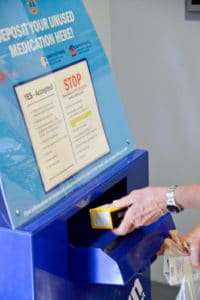How to Dispose of Unused Medications
When a doctor prescribes you medication, it comes with certain responsibilities. The expectation is that you will use it only as directed, keep it away from unauthorized users, and properly dispose of any leftover portion. Prescriptions only remain in effect for limited amounts of time. Even if you initially got the medication from a doctor, holding onto it for too long could have legal consequences. It is best to dispose of it.
However, you cannot just throw the medication in the trash, either. Otherwise, it could fall into a drug abuser’s hands. There are certain recommended methods for the disposal of different types of medication.
Throwing the drugs away

It is possible to dispose of most prescription medications, as well as over-the-counter drugs, by throwing them in the trash. Start by removing them from their original packaging. You can dispose of this after first scratching out any personally identifying information listed on it.
To prevent the pharmaceuticals from falling into the hands of unauthorized users, whether intentionally or by accident, you should mix up the drugs with coffee grounds, cat litter, or dirt. This not only disguises the substance but also makes it unappealing.
Before throwing the mixture away, put it in a sealed container to prevent leaks or spills. You can apply this procedure to certain medications in the following forms:
- Creams
- Drops/liquids
- Inhalers
- Patches
- Pills
Flushing medication
Some drugs are so potentially dangerous to others that, even when following the above procedure, you cannot throw them away. For these substances, you have to flush them down the toilet to dispose of them. The packaging should provide instructions about how to do so safely.
Do not worry about contaminating the local water supply. According to the Food and Drug Administration, the risk to the environment is minimal.
Using a drug take-back program
An alternative to either throwing the drugs away or flushing them, as appropriate, is participating in a drug take-back program in your community. You can find information from your pharmacist or law enforcement. Once a year, the Drug Enforcement Administration sponsors National Prescription Drug Take-Back Day across the country.
